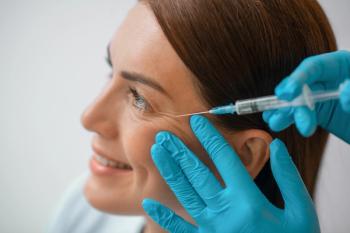
Antihistamines for Alopecia Areata?
A recent study examines the efficacy of antihistamines in combination with topical corticosteroids and superficial cryotherapy for the treatment of alopecia areata.
A new
AA, a prevalent autoimmune disease resulting in hair loss on the scalp and elsewhere on the body, is highly unpredictable, with existing treatment methods that generally have limited effect, according to the
Typical treatments include intralesional corticosteroid injections in hair loss areas and Janus kinase (JAK) inhibitors. The use of these therapies, however, can be cost-prohibitive, cause adverse effects, or be painful.
Due to the lack of highly effective treatments options for patients suffering with AA, some seek alternative options, including antihistamines.
The recent JAAD study1 examined this use of antihistamines, TCs, and SC in 148 patients from February 2012 to November 2018. While most patients were treated with a combination of TCs and SC, 24 patients were also given an adjuvant antihistamine treatment, either fexofenadine (180 mg/day adult, 30 mg/day children) or ebastine (10 mg/day adult).
After seven months’ treatment, study authors reported major hair regrowth in 100% of antihistamine-treated patients, while only 79.3% of those not treated with antihistamines exhibited comparable results.
According to the study authors, more research is needed to further understand antihistamines’ ability to act as intrinsic histamine H1-recepter antagonists and whether this is the key to the treatment’s success.
They say results of the study, along with reports stating no adverse effects from treatment, indicate the potential effectiveness of using antihistamines for patients with AA.
References:
- Lee YB, Lee WS. Efficacy of antihistamines in combination with topical corticosteroid and superficial cryotherapy for treatment of alopecia areata: A retrospective cohort study. J Am Acad Dermatol. 2020; epub ahead of print.
- Atanaskova mesinkovska N. Emerging Unconventional Therapies for Alopecia Areata. J Investig Dermatol Symp Proc. 2018;19(1):S32-S33.
Newsletter
Like what you’re reading? Subscribe to Dermatology Times for weekly updates on therapies, innovations, and real-world practice tips.











